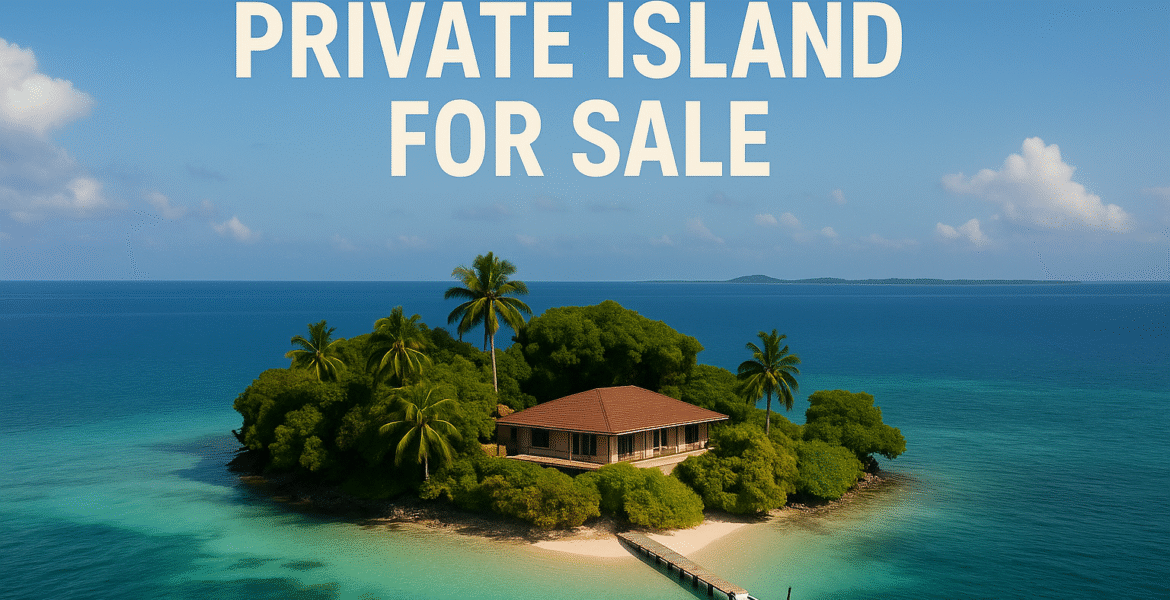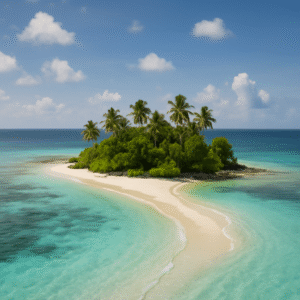Investing in a private island might sound like the domain of the ultra-wealthy, but as more individuals seek seclusion and unique experiences, the allure of private island ownership is becoming increasingly accessible. Whether you’re a travel agent curating bespoke experiences, a lifestyle influencer looking for exclusive content, or a hotel manager aiming to attract discerning guests, understanding the nuances of private island investments can open new horizons.
In this article, we will explore the essentials of purchasing a private island, the costs involved, and what you can expect from this unique investment.
Private islands symbolize the ultimate escape, offering privacy, serenity, and an opportunity to connect deeply with nature. They are the antithesis of crowded resorts and bustling tourist spots. For those who value understated luxury and authentic experiences, a private island offers a blank canvas to create an oasis of tranquility and individuality.
The Allure of Solitude
Owning a private island means having a sanctuary where time stands still and you can retreat from the world’s hustle and bustle. It’s a place where simplicity prevails, allowing you to prioritize genuine moments over spectacle. Imagine waking to the sound of gentle waves, with days spent exploring untouched landscapes or simply basking in the sun’s warmth.
Authentic Experiences
A private island offers the chance to immerse yourself in the local context. Whether it’s engaging with local communities, preserving the natural ecosystem, or savoring the region’s culinary delights, island ownership can deepen your connection to the destination and enrich your experience.
The Cost of Buying a Private Island
How Much Does a Private Island Cost?
Prices for private islands vary significantly depending on location, size, and amenities. Islands in popular destinations like the Caribbean or the Mediterranean typically command higher prices, ranging from $1 million to over $100 million. However, more affordable options exist in less developed areas, with some islands available for under $500,000.
Factors Influencing the Cost
- Location: Proximity to the mainland, climate, and political stability play a significant role in determining an island’s price. Islands near well-developed infrastructure are often more expensive due to easier access and potential for development.
- Size and Topography: Larger islands with varied landscapes and natural features such as beaches, forests, and freshwater sources are generally more desirable and, therefore, more expensive.
- Existing Infrastructure: Islands with pre-existing structures, such as homes or docks, or those with utilities like electricity and water, may cost more but offer immediate use and convenience.
- Development Potential: The potential for tourism development or establishing a resort can also influence an island’s cost. Islands with zoning permits or development approvals are often sought after by investors.
What to Expect When Purchasing a Private Island
Due Diligence
Buying a private island requires thorough due diligence, similar to any real estate investment. This includes researching legal restrictions, environmental regulations, and zoning laws. Engaging a local real estate expert or lawyer familiar with island properties can provide valuable insights and ensure a smooth transaction.
Considerations for Development
While the idea of developing a private island into a luxury retreat is enticing, it’s essential to consider the environmental impact and sustainability. Protecting the natural habitat and respecting local communities should be at the forefront of any development plans. Sustainable practices, such as using renewable energy sources and eco-friendly building materials, can enhance the island’s appeal and preserve its beauty for future generations.
Maintenance and Operations
Owning a private island involves ongoing maintenance and operational considerations. From ensuring reliable transportation to managing utilities and maintaining infrastructure, island ownership requires careful planning and management. Hiring a local caretaker or property manager can help streamline operations and address any challenges that arise.
The Potential of Private Island Investments
For Travel Agents
Private islands offer a unique selling point for travel agents seeking to create exclusive itineraries. By partnering with island owners or resorts, agents can curate unforgettable experiences that emphasize authentic connections and cultural immersion. From private yacht tours to bespoke culinary experiences, the possibilities are endless.
For Lifestyle Influencers
For lifestyle influencers, private islands provide a stunning backdrop for content that captivates and inspires. The combination of serene landscapes and luxury living can enhance storytelling and resonate with audiences seeking aspirational yet attainable experiences.
For Hotel Managers
Hotel managers can leverage the allure of private islands by offering guests personalized experiences that prioritize authenticity and local engagement. By emphasizing the island’s unique features and fostering connections with local communities, hotels can attract travelers who value meaningful and memorable stays.
Conclusion
Investing in a private island is a journey into the extraordinary. Whether you’re seeking a personal retreat, a business opportunity, or a new adventure, private island ownership offers unparalleled potential for those who appreciate luxury, authenticity, and the art of slow living. As you navigate this exciting venture, remember that the true value of a private island lies not just in its price tag, but in the experiences and connections it fosters. By approaching island ownership with an open heart and a commitment to sustainability, you can create a sanctuary that enriches your life and leaves a lasting legacy.



